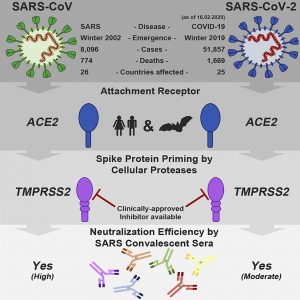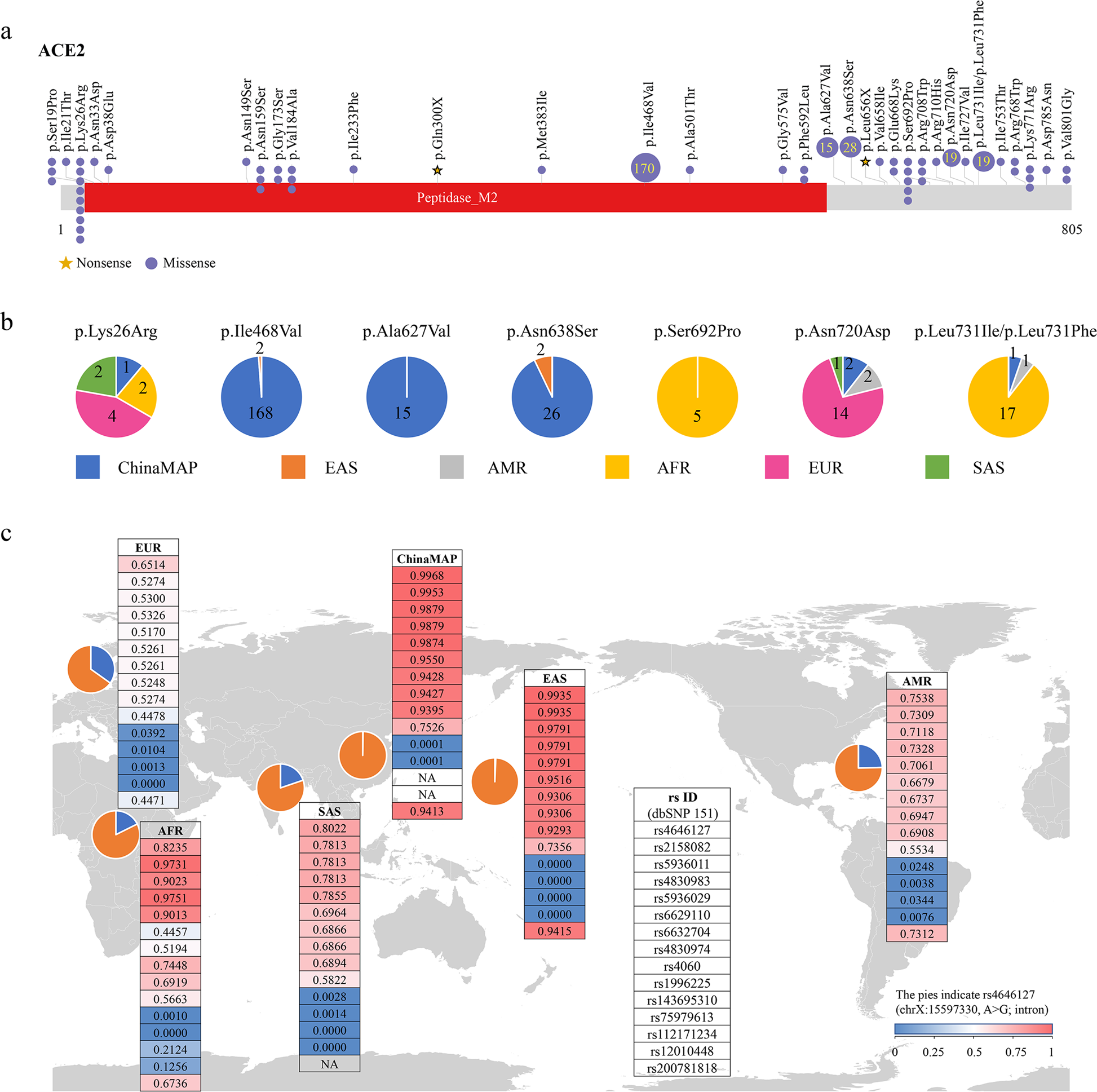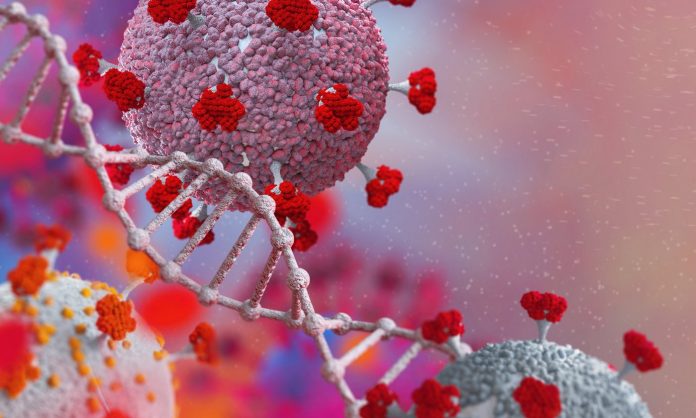Scientists identify a possible link between genetic variations in the ACE-2 receptor used by coronaviruses to enter cells and susceptibility to COVID-19 infections. Could your genetics protect you from an illness, and would genetic testing be helpful during treatment?
The beginning of a viral infection
Viruses are parasites. They have to hijack the cellular machinery of the host cell before they can produce new viral particles. This is why the first step of viral pathogenesis, the process by which a viral infection leads to disease, involves entering host cells.
Coronaviruses (the ones that are responsible for causing COVID-19 and SARS-CoV in humans) enter host cells by first interacting with proteins found on the surfaces of cells. Studies show that the angiotensin-converting enzyme 2 (ACE2) is the main surface receptor utilized by COVID-19 (aka SARS CoV2) to enter and infect the host cells (1).
The ACE2 protein and COVID-19 susceptibility
ACE2 is an enzyme involved in the renin-angiotensin system that regulates our blood pressure and salt balance. It is found on the surfaces of cells in our lungs, blood vessels, kidneys, and intestines.

Coronaviruses use their very characteristic spike protein for cell entry. In the case of COVID-19, the spike protein interacts with the ACE2 receptor and is taken up by the cells in a process called endocytosis. The action of a second protein, transmembrane serine protease 2 (TMPRSS2), is also required for this cell entry process.
Researchers believe the high levels of ACE2 in the lung cells play a critical role in the respiratory symptoms associated with COVID-19. A recent study also showed that cells in the oral cavity contain high ACE2 protein levels, which may provide the virus with easy access to host cells (2). As a result, blocking the activity of both ACE2 and TMPRSS2 is being explored as a potential avenue for combatting COVID-19.
Bringing in the genetics
Research has linked age, sex, ethnicity, underlying disease conditions (such as heart disease and lupus), and genetics to coronavirus susceptibility. Some of these factors (age, sex, ethnicity, and genetics) also contribute to varying ACE2 protein levels, likely modifying an individual’s vulnerability to coronavirus infections (3).
Now to focusing in on genetics: DNA variants in the ACE2 gene (e.g., rs2106809) are linked to varying ACE2 protein levels in the blood (4). It is possible that such modifications may play a role in virus susceptibility (5). One study examining genetic variation between different ethnicities suggests that the DNA changes contributing to varied ACE2 protein levels may result in different sensitivity to COVID-19 (6).

Can genetic testing facilitate COVID-19 treatment?
Now that we have established the link between genetic variation in the ACE2 gene and COVID-19 vulnerability, the question is: can genetic testing be useful for predicting disease severity and for choosing treatment options?
According to a preliminary study published by researchers at the University of British Columbia, genetic testing for ACE2 variants may allow physicians to make informed decisions about treatment options, thereby improving patient care.
They believe genetic testing may allow for the identification of ‘super-spreaders’ (asymptomatic individuals infected with COVID-19), patients that require treatment in intensive care, and infants/children who may be vulnerable to COVID-19.
Given the current pandemic, and the medical, social, and economic impacts that COVID-19 has had on countries around the world, any insights that can be gained to target our resources better will be extremely beneficial.
References
1. SARS-CoV-2 Cell Entry Depends on ACE2 and TMPRSS2 and Is Blocked by a Clinically Proven Protease Inhibitor
- High expression of ACE2 receptor of 2019-nCoV on the epithelial cells of oral mucosa.
- Role of Age, Comorbidity and Renin- Angiotensin-Aldosterone System in COVID-19. Effects of ACE Inhibitors and Angiotensin Receptor Blockers
- Circulating activities of angiotensin-converting enzyme, its homolog, angiotensin-converting enzyme 2, and neprilysin in a family study
- Human ACE2 receptor polymorphisms predict SARS-CoV-2 susceptibility
- Comparative genetic analysis of the novel coronavirus (2019-nCoV/SARS-CoV-2) receptor ACE2 in different population
- COVID-19 Infection and Circulating ACE2 Levels: Protective Role in Women and Children
- Sex-based differences in susceptibility to SARS-CoV infection
- ACE 2 Coding Variants: A Potential X-linked Risk Factor for COVID-19 Disease





